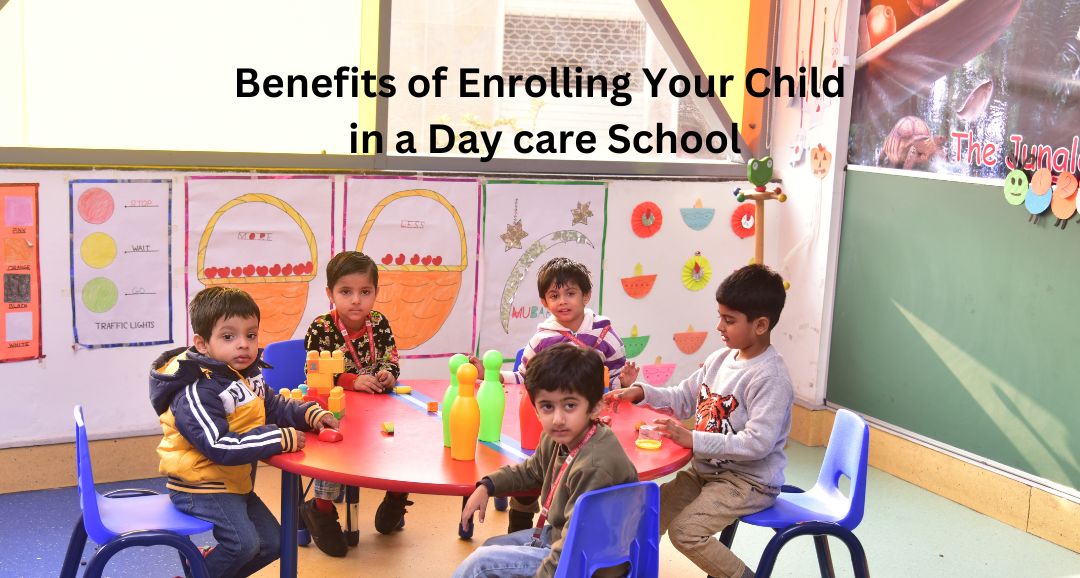Introduction:
In today’s fast-paced world, parents often juggle multiple responsibilities, making it essential to find a supportive and enriching environment for their children. At LPS Global School Noida, the Best day care School in Noida offer the perfect solution, providing a safe and structured learning environment that nurtures early childhood development. Understanding the advantages of enrolling a child in such an institution can help parents make an informed decision about their child’s early education.
1. Early Learning and Cognitive Development
One of the most significant benefits of a daycare school is its focus on early childhood education. These schools follow structured curriculums that emphasize:
- Language Development: Through storytelling, phonetics, and interactive activities, children develop strong verbal and communication skills.
- Cognitive Growth: Problem-solving exercises, puzzles, and hands-on activities stimulate curiosity and enhance logical thinking.
- Early Math and Science Skills: Basic number recognition, patterns, and sensory-based learning experiences prepare children for future academic success.
2. Development of Social Skills
Daycare schools create an environment where children interact with peers and adults, fostering essential social skills such as:
- Sharing and Cooperation: Activities encourage teamwork and an understanding of group dynamics.
- Conflict Resolution: Children learn to manage disagreements and express emotions constructively.
- Respect and Empathy: Exposure to diverse classmates helps children develop a sense of understanding and inclusion.
3. Safe and Structured Environment
A well-established daycare ensures:
- Trained and Qualified Staff: Professionals who are skilled in child care and development provide a nurturing atmosphere.
- Secure Facilities: Surveillance, restricted access, and safety protocols guarantee a protected setting for children.
- Hygienic Practices: Clean, well-maintained environments reduce the risk of infections and promote healthy habits.
4. Emotional and Psychological Growth
Attending a daycare school helps children develop emotional stability and resilience. They learn to:
- Adapt to new situations with confidence.
- Develop independence and self-reliance through structured activities.
- Build emotional intelligence by recognizing and managing their feelings effectively.
5. Encouragement of Creativity and Imagination
Daycare programs integrate various artistic and play-based activities such as:
- Music and Dance: Enhances motor skills and auditory perception.
- Arts and Crafts: Encourages creativity and self-expression.
- Dramatic Play: Strengthens cognitive flexibility and storytelling abilities.
6. Physical Development and Active Play
Physical activity is an integral part of daycare learning. The curriculum typically includes:
- Outdoor Play: Exposure to fresh air and sunshine supports overall well-being.
- Fine and Gross Motor Skill Development: Activities like climbing, running, and balancing enhance physical coordination.
- Healthy Lifestyle Habits: Schools emphasize proper nutrition and exercise routines from an early age.
7. Smooth Transition to Formal Schooling
Daycare schools create a bridge between home and formal education by:
- Introducing Classroom Discipline: Helps children get accustomed to routines and structured learning.
- Developing Listening and Comprehension Skills: Prepares children for future academic instruction.
- Enhancing Focus and Attention Span: Structured learning environments help children build concentration and patience.
8. Convenience for Working Parents
For parents managing professional commitments, daycare schools offer:
- Extended Hours: Ensuring children receive care even after regular school hours.
- Flexible Drop-Off and Pick-Up Timings: Catering to the diverse schedules of working parents.
- Parental Engagement Programs: Schools often keep parents informed about their child’s progress through reports and regular meetings.
9. Cultivation of Good Habits and Etiquette
Children in daycare settings learn essential life skills, including:
- Personal Hygiene: Handwashing, toilet training, and clean eating habits.
- Discipline and Time Management: Following daily routines instills punctuality and responsibility.
- Respect for Authority: Learning from teachers helps children understand rules and boundaries.
10. Exposure to a Multicultural Environment
Diverse classroom settings provide:
- Cultural Awareness: Celebrating festivals and traditions from various backgrounds fosters inclusion.
- Language Enrichment: Interaction with peers from different linguistic backgrounds enhances language skills.
- Global Perspective: Early exposure to different cultures shapes open-minded and adaptable individuals.
11. Improved Parental Work-Life Balance
Parents can focus on their professional and personal lives with the peace of mind that their children are in a safe and nurturing environment. Benefits include:
- Reduced Stress: Knowing their child is well cared for alleviates parental anxiety.
- Quality Family Time: With daycare handling early education, parents can dedicate evenings and weekends to family bonding.
12. Personalized Attention and Individualized Learning
Daycare schools maintain small class sizes, ensuring that each child receives:
- Customized Learning Approaches: Teaching methods are adapted to suit different learning styles.
- One-on-One Interaction: Teachers can identify each child’s strengths and areas of improvement.
- Encouragement and Positive Reinforcement: Boosts confidence and fosters a love for learning.
13. Enhanced Parent-School Collaboration
Daycare schools encourage parental involvement through:
- Regular Parent-Teacher Meetings: Discussing child development and learning progress.
- Workshops and Events: Encouraging parents to participate in their child’s educational journey.
- Digital Updates: Many schools offer apps or online platforms to keep parents informed about daily activities and milestones.
14. Early Identification of Learning Needs
Trained educators can detect early signs of:
- Speech and Language Delays: Ensuring timely interventions if necessary.
- Cognitive or Emotional Challenges: Addressing concerns before they impact formal schooling.
- Behavioral Adjustments: Helping children adapt to structured learning environments effectively.
15. A Positive and Joyful Learning Experience
Ultimately, daycare schools provide an environment where children:
- Enjoy Learning: Engaging activities foster curiosity and enthusiasm.
- Develop Friendships: Building meaningful relationships from an early age.
- Feel Secure and Loved: A nurturing atmosphere enhances emotional well-being.
Conclusion
Enrolling a child in a daycare school offers numerous benefits that extend beyond academics. At LPS Global School Noida, the Top Day care Schools in Noida where these institutions provide a holistic environment that nurtures cognitive, social, emotional, and physical development. By fostering a love for learning, instilling discipline, and encouraging creativity, daycare schools lay a strong foundation for lifelong success. Parents seeking a balanced, enriching, and safe educational experience for their children can confidently explore options that prioritize overall growth and well-being.

